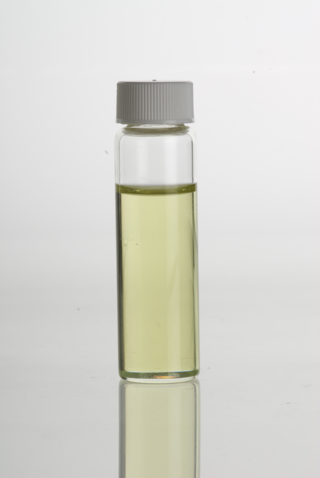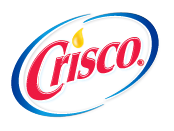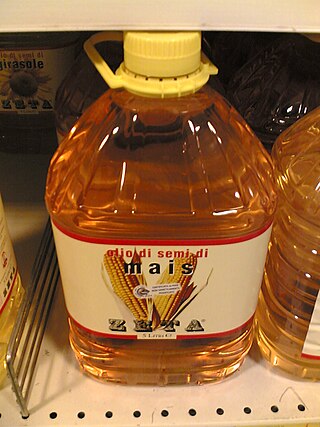
Vegetable oils, or vegetable fats, are oils extracted from seeds or from other parts of fruits. Like animal fats, vegetable fats are mixtures of triglycerides. Soybean oil, grape seed oil, and cocoa butter are examples of seed oils, or fats from seeds. Olive oil, palm oil, and rice bran oil are examples of fats from other parts of fruits. In common usage, vegetable oil may refer exclusively to vegetable fats which are liquid at room temperature. Vegetable oils are usually edible.

Hemp oil is oil obtained by pressing hemp seeds. Cold pressed, unrefined hemp oil is dark to clear light green in color, with a nutty flavor. The darker the color, the grassier the flavour. It should not be confused with hash oil, a tetrahydrocannabinol-containing oil made from the Cannabis flower.

Grape seed oil is a vegetable oil derived from the seeds of grapes. A by-product of the winemaking industry, it is typically used for edible applications.

The J.M. Smucker Company, also known as Smuckers, is an American manufacturer of food and beverage products. Headquartered in Orrville, Ohio, the company was founded in 1897 as a maker of apple butter. J.M. Smucker currently has three major business units: consumer foods, pet foods, and coffee. Its flagship brand, Smucker's, produces fruit preserves, peanut butter, syrups, frozen crustless sandwiches, and ice cream toppings.

Cottonseed oil is cooking oil from the seeds of cotton plants of various species, mainly Gossypium hirsutum and Gossypium herbaceum, that are grown for cotton fiber, animal feed, and oil.

Oleic acid is a fatty acid that occurs naturally in various animal and vegetable fats and oils. It is an odorless, colorless oil, although commercial samples may be yellowish. In chemical terms, oleic acid is classified as a monounsaturated omega-9 fatty acid, abbreviated with a lipid number of 18:1 cis-9, and a main product of Δ9-desaturase. It has the formula CH3−(CH2)7−CH=CH−(CH2)7−COOH. The name derives from the Latin word oleum, which means oil. It is the most common fatty acid in nature. The salts and esters of oleic acid are called oleates. It is part of many oils and thus used in a lot of artificial food, as well as for soap.

Shortening is any fat that is a solid at room temperature and used to make crumbly pastry and other food products.

Omega-6 fatty acids are a family of polyunsaturated fatty acids that have in common a final carbon-carbon double bond in the n-6 position, that is, the sixth bond, counting from the methyl end.

Conagra Brands, Inc. is an American consumer packaged goods holding company headquartered in Chicago, Illinois. Conagra makes and sells products under various brand names that are available in supermarkets, restaurants, and food service establishments. Based on its 2021 revenue, the company ranked 331st on the 2022 Fortune 500.

Crisco is an American brand of shortening that is produced by B&G Foods. Introduced in June 1911 by Procter & Gamble, it was the first shortening to be made entirely of vegetable oil, originally cottonseed oil. Additional products marketed under the Crisco brand include a cooking spray, various olive oils, and other cooking oils, including canola, corn, peanut, sunflower, and blended oils.

Hunt's is the name of a brand of preserved tomato products owned by Conagra Brands. The company was founded in 1888, in Sebastopol, California, as the Hunt Bros. Fruit Packing Co., by Joseph and William Hunt. The brothers relocated to nearby Santa Rosa in 1890, and then to Hayward in 1895. This small canning operation grew rapidly, focused on canning the products of California's booming fruit and vegetable industries. By 1941, the plant shipped a hundred million cans of soup, fruits, vegetables, and juices annually.

Corn oil or maize oil (British) is oil extracted from the germ of corn (maize). Its main use is in cooking, where its high smoke point makes refined corn oil a valuable frying oil. It is also a key ingredient in some margarines. Corn oil is generally less expensive than most other types of vegetable oils.
The smoke point, also referred to as the burning point, is the temperature at which an oil or fat begins to produce a continuous bluish smoke that becomes clearly visible, dependent upon specific and defined conditions. Smoke point values can vary greatly, depending on factors such as the volume of oil utilized, the size of the container, the presence of air currents, the type and source of light as well as the quality of the oil and its acidity content, otherwise known as free fatty acid (FFA) content. The more FFA an oil contains, the quicker it will break down and start smoking. The lower the value of FFA, the higher the smoke point. However, the FFA content typically represents less than 1% of the total oil and consequently renders smoke point a poor indicator of the capacity of a fat or oil to withstand heat.

Soybean oil is a vegetable oil extracted from the seeds of the soybean. It is one of the most widely consumed cooking oils and the second most consumed vegetable oil. As a drying oil, processed soybean oil is also used as a base for printing inks and oil paints.

Reddi-Wip is an American brand of sweetened whipped cream propelled from its container by nitrous oxide. It is produced by Conagra Brands and is sold in varieties such as Original, Extra Creamy, Fat Free, Zero Sugar, and Barista. In 2019, two new plant-based varieties, Non-Dairy Coconut and Non-Dairy Almond, were released. Both products are dairy-free and plant-based.

PAM is a cooking spray currently owned and distributed by ConAgra Foods. Its main ingredient is canola oil.

An oil mill is a grinding mill designed to crush or bruise oil-bearing seeds, such as linseed or peanuts, or other oil-rich vegetable material, such as olives or the fruit of the oil palm, which can then be pressed to extract vegetable oils, which may be used as foods or for cooking, as oleochemical feedstocks, as lubricants, or as biofuels. The pomace or press cake – the remaining solid material from which the oil has been extracted – may also be used as a food or fertilizer.

Cooking oil is a plant or animal liquid fat used in frying, baking, and other types of cooking. Oil allows higher cooking temperatures than water, making cooking faster and more flavorful, while likewise distributing heat, reducing burning and uneven cooking. It sometimes imparts its own flavor. Cooking oil is also used in food preparation and flavoring not involving heat, such as salad dressings and bread dips.

Rapeseed oil is one of the oldest known vegetable oils. There are both edible and industrial forms produced from rapeseed, the seed of several cultivars of the plant family Brassicaceae. Historically, it was restricted as a food oil due to its content of erucic acid, which in laboratory studies was shown to be damaging to the cardiac muscle of laboratory animals in high quantities and which imparts a bitter taste, and glucosinolates, which made it less nutritious in animal feed. Rapeseed oil from standard cultivars can contain up to 54% erucic acid.


















